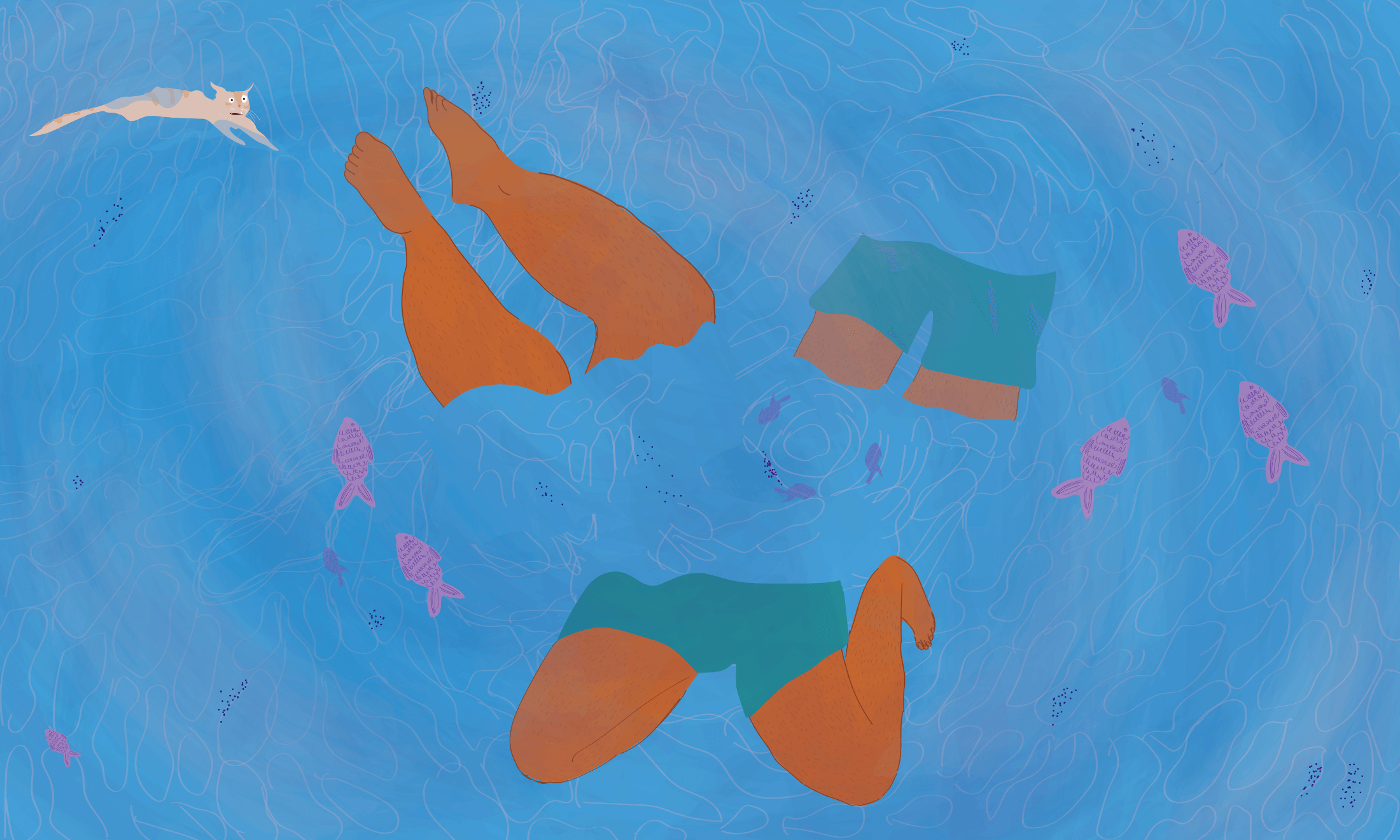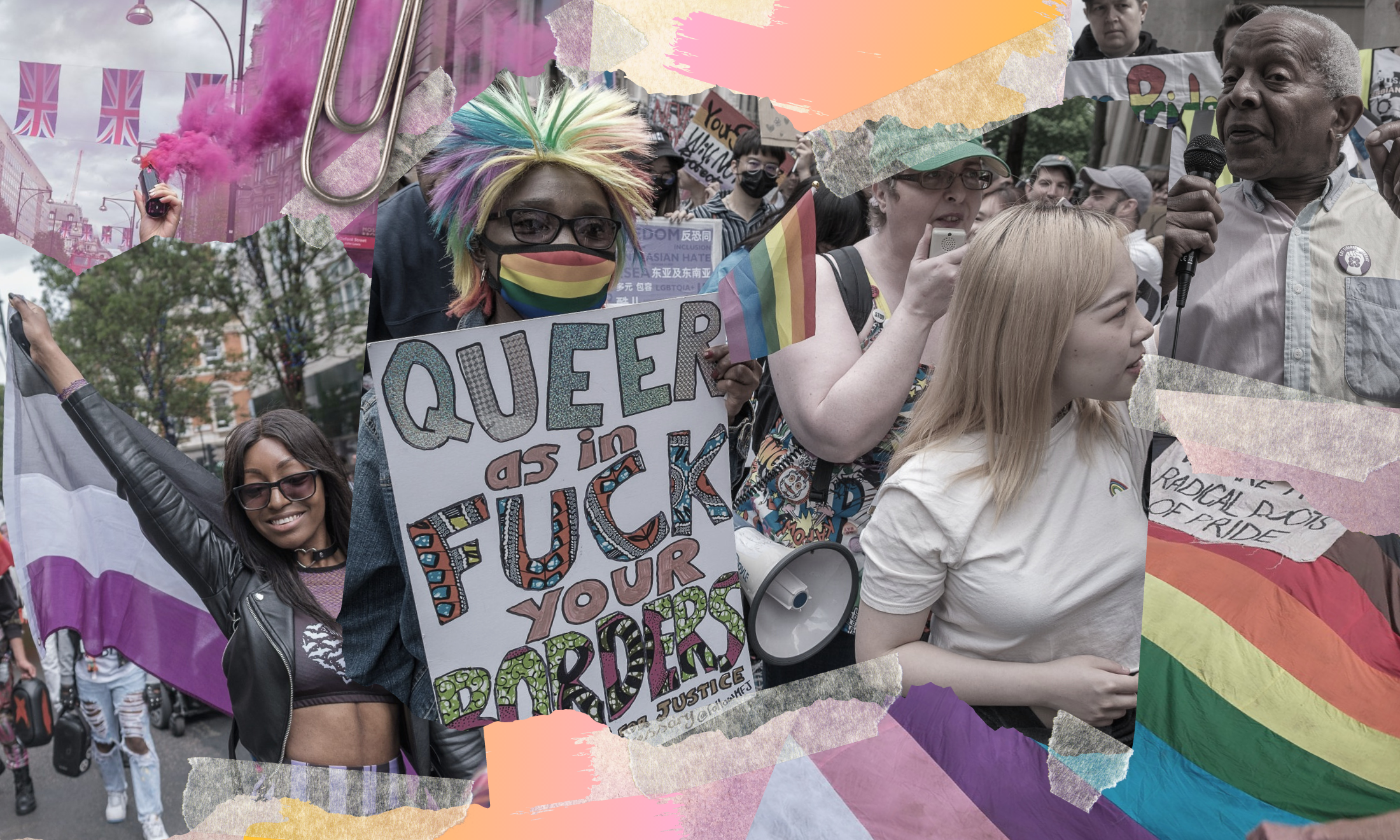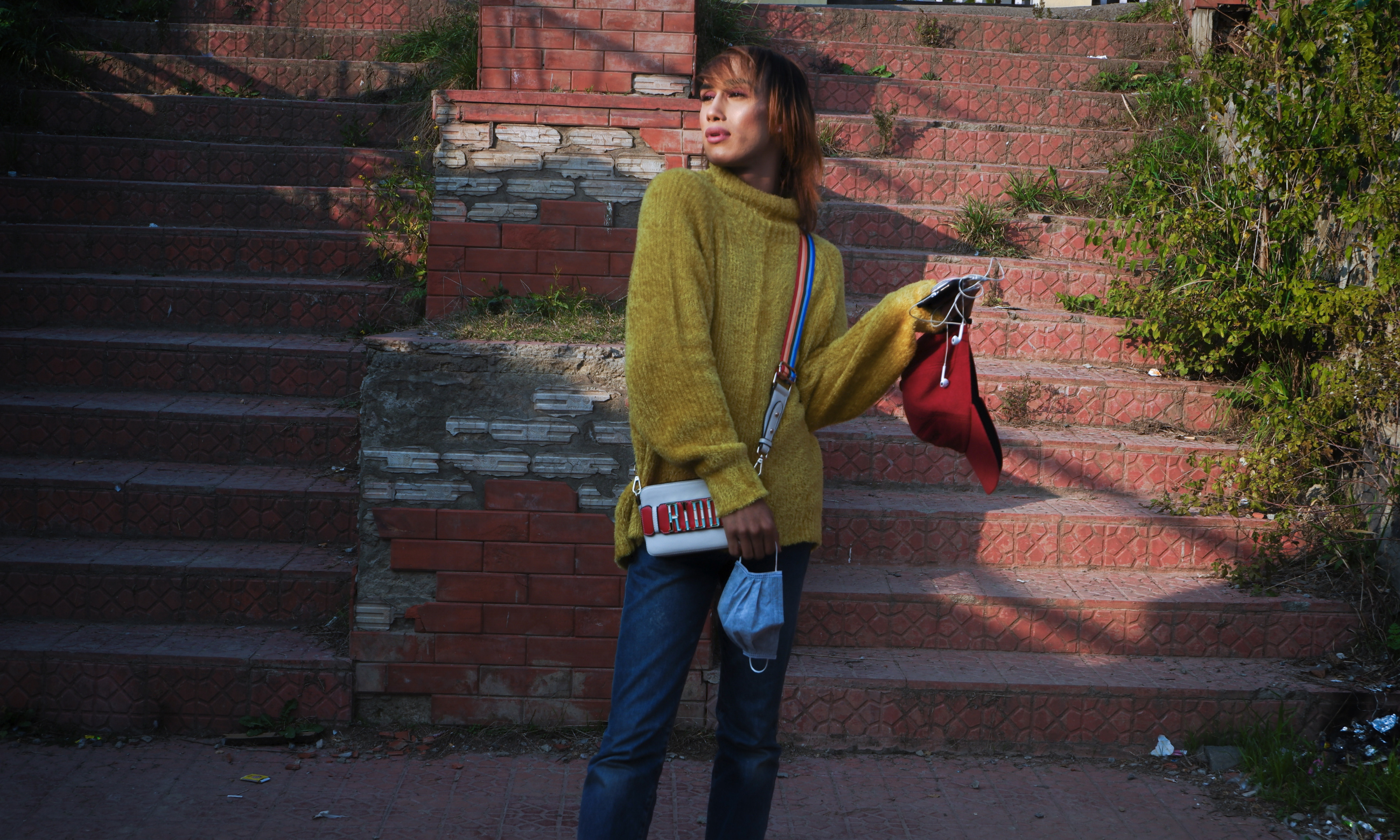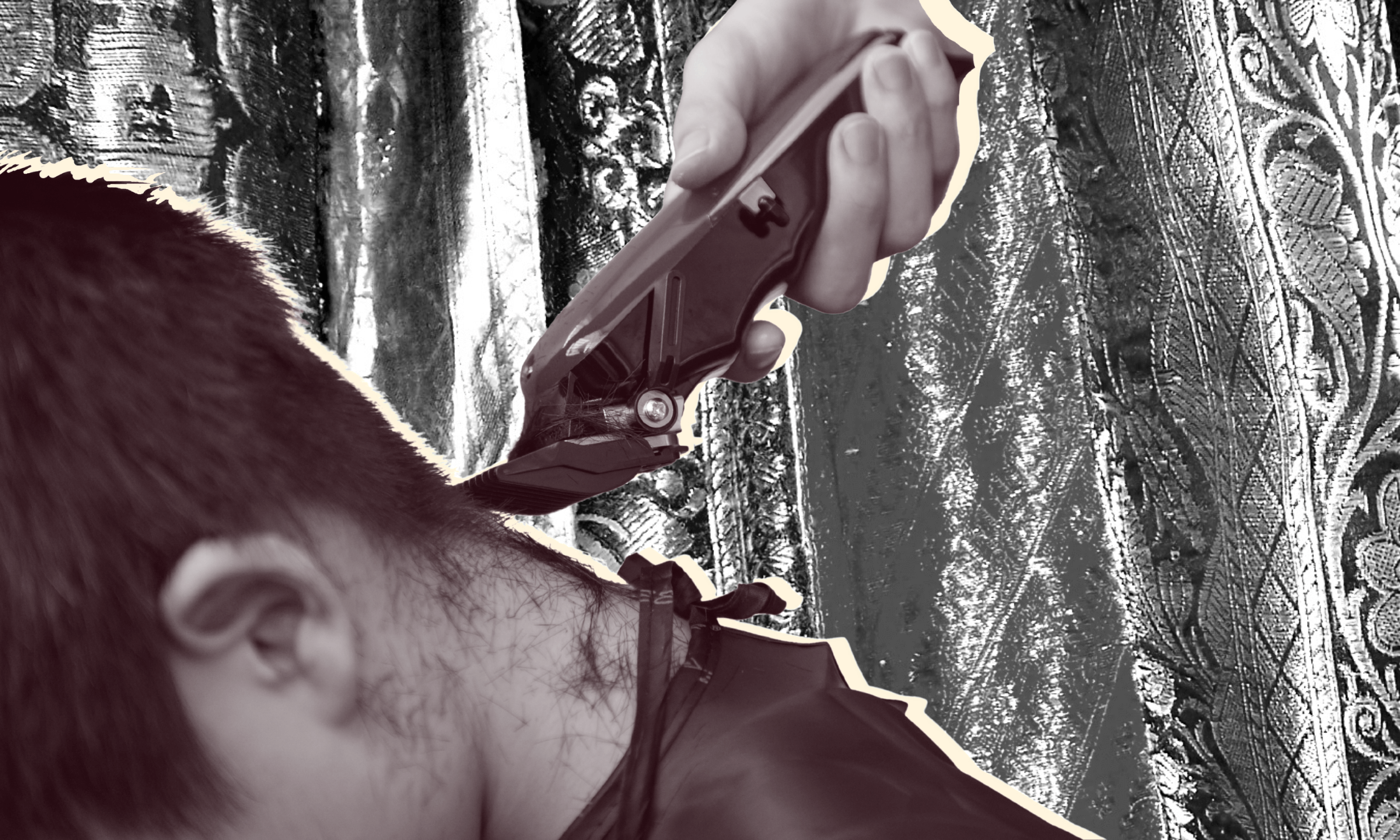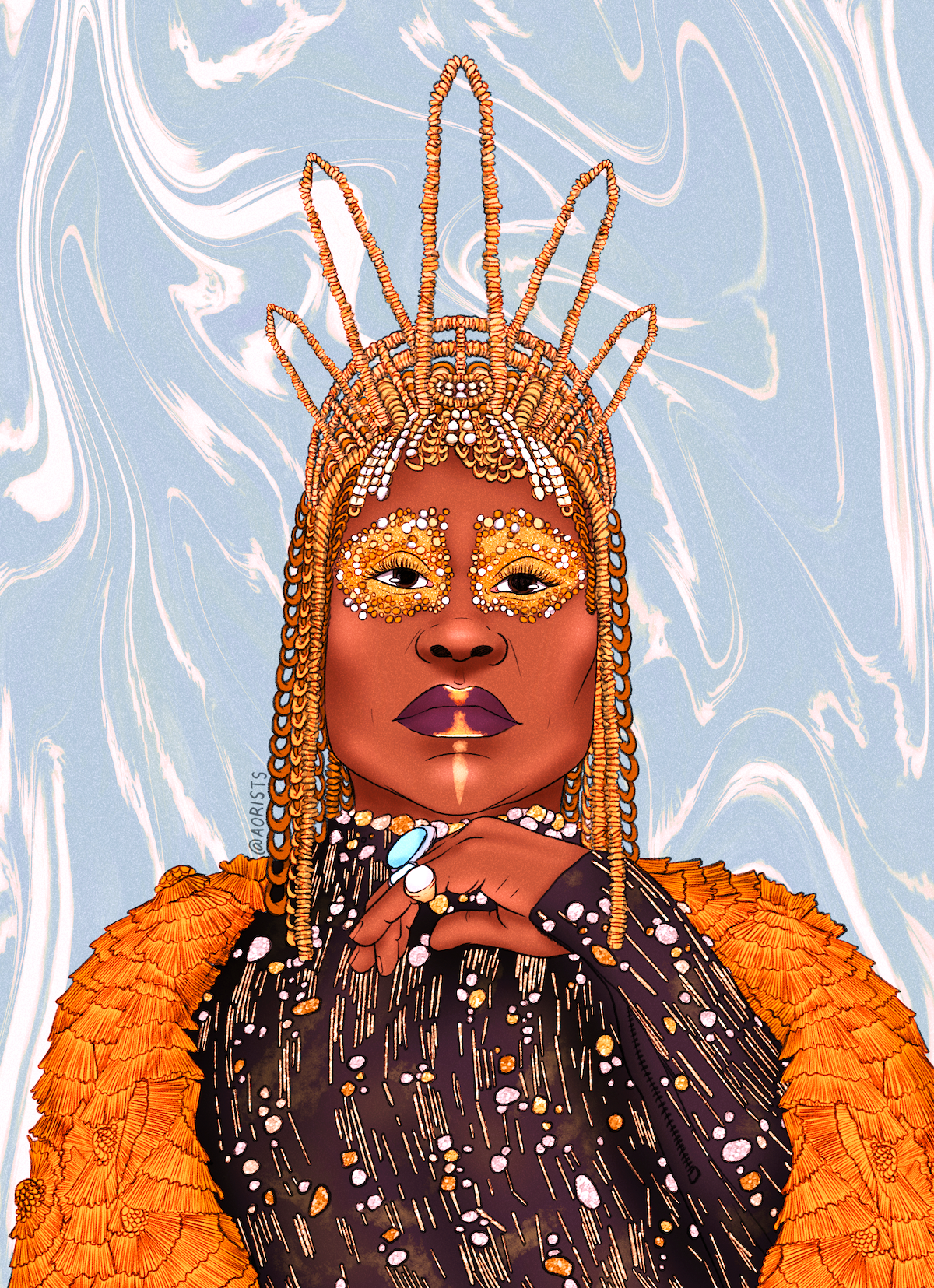
Illustration by Anshika Khullar, via @aorists’s Instagram
Billy Porter is having the time of his life. “I’m having a blast. I really am,” he tells me excitedly over the phone. “It really is a dream.” He’s of course still basking in the afterglow of his Met Gala debut, where he was carried into the event dressed as an Egyptian sun god atop a chaise lounge, carried by masked impeccably toned men.
At 49-years-old, the Pose actor is quickly becoming known for his charming ability to inject much needed fun and fearlessness into the often predictable awards season’s red carpet processions. We had originally swapped numbers as we browsed the breakfast buffet at the London West Hollywood Hotel in Los Angeles just a few months ago. As I approached him there were no other words to say but: “Oh my god, that Oscars dress!” He turned heads, and made Glenn Close feel every single feeling possible, when he showed up in a Christian Siriano velvet tuxedo gown, which followed black tie convention above the waist with its smart silk lapels, before billowing into a skirt that trailed behind him.
To put it bluntly, he’s the embodiment of the Met Gala theme. A GLAAD nominated Broadway actor, starring in the likes of Kinky Boots, Grease!, and Dreamgirls. He always looks pristinely groomed with not a hair out of place, and is surprisingly frank with a very hearty laugh. “You have to take the morsel of who you are and explode it to the highest point of extravagance and reverence… and fun,” he says. That’s camp. But, he hasn’t always been able to be this fearless among his peers.
He explains: “I fought for my authenticity, being able to own that I’m a gay man, being out in the business, not lying about that so that I could possibly get work.” What intrigues me is how deeply he thought about his attire. In relation to his gender-bending exuberant style, he told me that he’d watched more friends die in his early 20s than his grandmother had in her 80s. You may think, what does that have to do with show-stopping looks on the red carpet? Well, for Billy this isn’t just about showing up and showing out. He’s carving out a path that feels true to himself which allows him to be open and celebratory. He adds: “I feel free”.
We caught up with him to talk about his Met look, fearless fashion, and how being camp in the entertainment industry was not always this glamorous.
The Category Is: Old Testament Realness.
— Billy Porter (@theebillyporter) May 7, 2019
Creative Direction and Styling for all by @sammyratelle
Make-Up by: @lasonyagunter⠀
Custom Look: @theblondsny⠀
Custom Shoes: @giuseppezanotti⠀
Jewelry by: @oscarheyman #andreoli @johnhardyjewlery @mordekaiofficial ⠀#MetGala2019 pic.twitter.com/uNLWpeZjYq
gal-dem: How do you personally relate to the word camp?
Billy Porter: I thought ‘well this is why I haven’t been invited to the Met ball before now’. Because, this was the perfect fit for me. It’s like my career has essentially been playing campy, flamboyant characters. And the thing about the word is that within the last couple of decades, it’s taken on a negative connotation. It’s used as a pejorative, it’s used when someone wants to criticise something or ridicule something. The thing about the Met having this theme is that it sort of reclaims the artform and how it deserves to be right up there alongside the fashion elite. It was a beautiful evening for me.
I came into this industry with a very specific talent and I was pigeonholed into being the gay clown. What I’ve been fighting for for the last 30 years is the human story behind the flamboyant clown. I really took all the hits that came with trying to be out in this industry. There were long bouts of no work, I didn’t work on Broadway for 13 years. I’d really been shut out of the film and television industry and dismissed until now.
Is it vital to you that young queer men get to see you be proud and playful on red carpets?
This is a real interesting time for me because I’ve been trying to explore this fashion thing on my own without assistance or guidance. Nobody ever really understood what I had been trying to do because men don’t really do it like this. In general men in Hollywood do not play with fashion like the women do and I wanted to change that. But, it’s just hard to do when it’s something that people haven’t seen before, or very often. It’s been a hard thing for people to understand. So you know, these last six months have been truly explosive and sort of vindication for me. Like: ‘I was right, I was right. I knew this kind of thing could happen to me and could be done’.
“I came into this industry with a very specific talent and I was pigeonholed into being the gay clown”
Billy Porter
Why do you think that men, especially heterosexual men don’t really push that many boundaries on the red carpet? Do you think that if they did it would have positive ramifications for fashion in general?
I still feel like the progress for inclusivity, authenticity and all of that are rooted in commerce. If it’s not going to make money it probably won’t have that many ramifications for the fashion industry in general. So we’ll see. If heterosexual, ‘masculine’ men can play on the runway and still sell their superhero movies, then it’ll be fine.
The reason why this doesn’t happen more with men is because the microscope of masculinity is on from the very beginning, one false move outside of this masculine construct paradigm that the world has set up for us and you’re not bankable. That’s why the men don’t play. That’s why the men feel trapped. But I don’t have to worry about that anymore (laughs). It’s been like 30 years of the industry explicitly telling me that I’m not masculine enough, because I didn’t get that work. I’ve never got (traditionally masculine roles). I can play that but they had made the decision that I can’t. So now here I am playing this queer character and getting this attention so I get to play. I’m totally free.
What was the story behind this look?
For the Met Gala ensemble, Ryan Murphy said: ‘You should do the entire Diana Ross Mahogany montage. All five fashion looks’. I was like, ‘Bitch I don’t want to work that hard, but let me see what she did’. I watched it and thought that the Egyptian look was an explosion of camp. That’s when we went to the Blonds because I really feel they are the quintessential modern-day camp fashion gurus. They really understand it and they understand it in a high fashion, or couture, way.
So who were the guys that were carrying you?
They are all from the Broadway community. We had a little casting call and we wanted to go back to my roots. The Broadway community carry people all the time (laughs). We had a rehearsal, but they instinctively know how to do choreography, you know what I mean?
“The microscope of masculinity is on (actors) from the very beginning, one false move outside of this masculine construct paradigm that the world has set up for us and you’re not bankable”
Billy Porter
What was the atmosphere like when you were carried into the Met Gala?
Pandemonium (laughs). Lady Gaga came before me, and then Serena Williams and then I came out. I have to say, judging by how this whole awards season has been for me, being in the first wave is always the best way to go. Because everybody is fresh, everybody’s ready to go. For me I’m sort of just becoming relevant in that space, I need to not be competing with people who have been there already. So it’s nice to come early. Then the focus is in the right place.
How does it feel for Pose to have been so celebrated? Is it nice being on set again?
It’s heaven. I never even imagined that it would look like this. I spent 20 years, 25 years trying to put on the layer of performative masculinity in whatever way that people could accept it. You know, trying to figure out how to make myself accessible, make myself passable. As it turns, out my real true authenticity is the only thing I ever needed to be.
Im not saying Billy Porter started a trend I’m just sayin…. pic.twitter.com/UEFA1NDi1m
— Waka Flocka Seagulls ? (@biancaxunise) May 7, 2019


